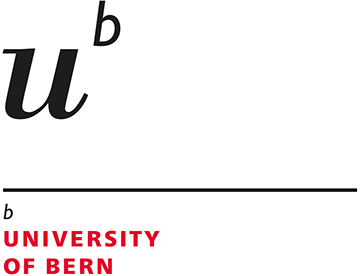Seeking a new future for transplant patients
Face and hand transplants remain rare and risky due to ethical and medical concerns but research at the University of Bern is looking ahead to a time when transplant patients may not need to have their entire immune system suppressed to avoid transplant rejection, as is the case today.
Author: Faryal Mirza, International Relations Office

This potentially marks the first step in opening a new line of research to benefit patients with major injuries to non-vital organs like the hands. They include victims of major injuries, such as those sustained in the line of military duty, among others.
Project design
All transplant patients counter the risk of their immune systems rejecting any new organ by taking life-long medication to suppress their immune systems. Immunosuppression, however, comes with risks as the medication can have toxic effects on other organs.
Specifically, Adriano Taddeo’s project is considering if it is possible to develop site-specific immunosuppression when it comes to hand transplantation.
It will focus on whether the lymphatic system can be exploited to reduce the need for immunosuppressive drugs.
“Not many studies exist on what happens to the lymphatic system after hand transplantation and specifically what happens if we block or stimulate the production of lymphatic vessels, which are important to normal immunological functions,” says Taddeo.
The idea is to analyze the lymphatic system in pre-clinical hand-transplant models and try to understand if the former can be modified to influence rejection of vascularized composite allotransplantation (VCA). VCA refers to the transplantation of multiple tissues as a functional unit such as a hand or face.
“This type of transplant is non-life-saving, which means that it can improve the quality of life of a patient but is not vital to survival,” Taddeo explains, who is part of the hand surgery research group.
Ethical issues
VCA comes with a number of ethical issues due to the nature of the transplantation itself. Unlike a heart or kidney transplant, VCA can involve transplanting more visible body parts.
“In the case of a hand or a face, they are associated with personality. They are visible, can be touched and used for communication,” says Taddeo.
Therein lies the difficulty, sometimes putting the donor’s family in a situation vastly different to when an otherwise unseen organ, such as a heart or liver, is to be donated.
From a medical point of view, however, the visibility of such a graft can have advantages.
“If there is a problem with the transplant, it can often be seen and, thus, treated immediately,” says Taddeo.
Another area of debate is whether VCA is suitable for children.
“A new hand for a child may not only be life-saving as it allows the child to have a better quality of life but it might also prolong life itself,” says Taddeo.
The downside is that the child would have to commit to drug immunosuppression for the rest of their life. And the younger the patient, the more difficult it is to adhere to a daily regimen of medication.
“We are moving very cautiously in this area and it is the right way to go because patients have to come first,” the researcher underlines.
Military injuries
As to how many people might benefit from a successful VCA, Taddeo says it is difficult to name a number but that there is a clear need in the military, for example, to help patients with major injuries.
“Nowadays, VCA is not restricted to the hand or face but can include the penis, abdominal walls and uterus. So, the number of people that could benefit from VCA is expanding exponentially,” Taddeo explains.
On the back of that need, funding for Taddeo’s concept award comes from the United States Department of Defense.
“It is looking for good ideas from all over the world for opening new lines of research in the VCA field,” he says.
Side effects
The side effects of medically induced immunosuppression can also reduce the benefits of having a transplant for the patient.
That is the main reason why hand and face transplantations have not yet been carried out in Switzerland, according to Taddeo.
“While graft rejection can be avoided due to drugs like ciclosporin or tacrolimus, these drugs are still very nephrotoxic,” says Taddeo.
This means that they can negatively affect kidney function.
If, with time, nothing is done to control the body’s response to the damage caused, patients will need to go on dialysis.
In worst cases, a kidney transplant may also be needed and the liver is affected too. The overall risk of tumors increases as the immune system is the first line of defense against such attacks.
Thankfully, not all patients suffer the same side effects and help is at hand from other drugs, Taddeo adds.

Research in Bern
A medical biotechnologist by training, Taddeo has long specialized in transplantation and tissue-engineering, as well as immunology.
The University of Bern provides an ideal ground to conduct this research, he says.
“Not all institutions are willing to invest in something that is not immediately applicable but I am part of a research group that is investing in this field for the future,” Taddeo explains.
“That is something very positive about working in Bern,” he emphasizes.
22.10.18
